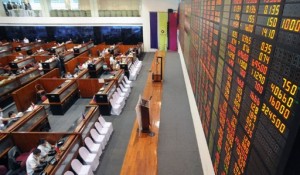The Philippines can attain a full-year economic growth of 6.5 to 7 percent in 2017 on the back of improved government spending and export performance, investment house First Metro Investment Corp. said.
The country posted a better-than-expected gross domestic product (GDP) growth of 6.9 percent year-on-year in the third quarter. This brought the average nine-month growth in 2017 to 6.7 percent, despite coming from a high base last year—a presidential election year—during which GDP grew by 6.9 percent.
“With the growth momentum back in third quarter and a strong start in the fourth quarter, we think our early forecast of 6.5 to 7 percent GDP growth for 2017 will easily play out,” FMIC said in its December issue of “The Market Call,” a publication jointly published with the University of Asia and the Pacific.
The economy was off to a fast start in the fourth quarter, with government spending likely maintaining its fast pace and expanding by double digits in the last two months of the year, the research said.
The research noted that infrastructure and capital outlays by the government had sped up by 17.8 percent in October. Government spending surged by 28 percent year-on-year, setting the stage for even faster GDP growth in the fourth quarter, FMIC said.
“Supporting this quickening pace, exports growth remained positive, while foreign investments continued to rebound as it soared by 70 percent in August,” the research said.
Annual inflation rate has also slowed to 3.3 percent in November from 3.5 percent in October, providing more confidence to consumers, it noted.
“All these put an acceleration bias for the economy, following through a better-than-expected GDP growth in Q3,” the research said.
FMIC said the economy should continue to accelerate in the fourth quarter as government spending continued to expand while exports would likely rebound from a relatively feeble third quarter notwithstanding some impact from the devastating hurricanes in the US in September.
The depreciation of the peso against the US dollar is also seen to translate to better export earnings alongside the synchronized upswing in the global economy.
“Inflation should remain at 3.3 percent in December, but we do expect a sharp jump in January with the Congressional approval of higher fuel taxes, sin taxes (alcohol, beer, and cigarettes), a new tax on sugar-based beverages, a slew of other taxes, and less exemptions for VAT (value added tax),” the research said.
President Duterte recently signed into law the Tax Reform on Acceleration and Inclusion (Train), a tax reform program that is seen to support the “build, build, build” program of the government and a faster economic growth in the years ahead.
FMIC expects the BSP to start raising interest rates in the first quarter of 2018.


